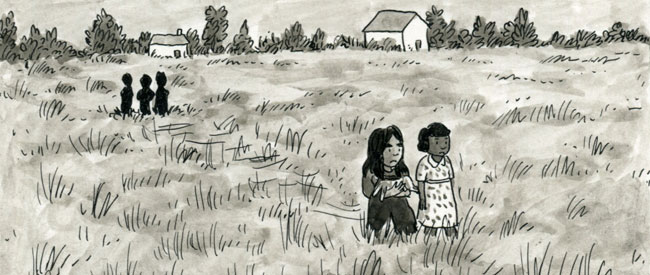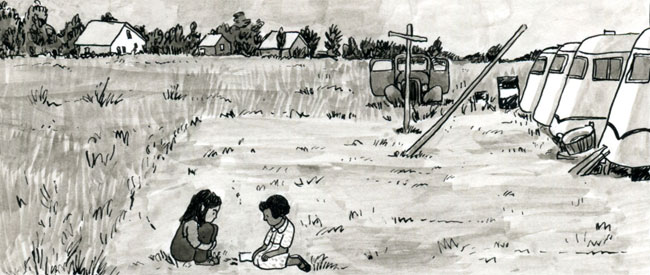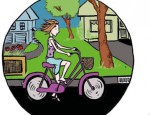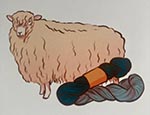In her long-form tale of depression-era childhood, Melissa Mendes draws on her family history to create a rich portrait of a young girl and the confusing, often brutal world around her.
 Melissa Mendes’s most familiar piece of work so far is probably Lou, her charming and popular series of mini-comics for Oily Press. But while the opening two parts of her current long-form project, The Weight, also centre on a young female protagonist, they highlight a cartoonist of increasing maturity and substance.
Melissa Mendes’s most familiar piece of work so far is probably Lou, her charming and popular series of mini-comics for Oily Press. But while the opening two parts of her current long-form project, The Weight, also centre on a young female protagonist, they highlight a cartoonist of increasing maturity and substance.
Inspired by a memoir that Mendes’s grandfather wrote towards the end of his life, The Weight tells the tale of Edie, a young girl born into the bleak depression-era environment of rural New York state.
Drawing on Grandpa Jack’s detailed descriptions of his childhood, The Weight initially brings to mind Emmanuel Guibert’s How The World Was. However, Mendes’s story has a much sharper fictional focus, plunging you into the young girl’s view of the often threatening and confusing world without the benefit of hindsight offered by a long life.
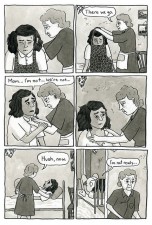 The book opens with her improvised birth in a farmhouse, to a brutal, controlling father and a broken, victimised mother. By the end of the issue, the new-born has been dragged into an itinerant lifestyle on the father’s whim; it concludes with mother and child being thrust into a journey into the unknown.
The book opens with her improvised birth in a farmhouse, to a brutal, controlling father and a broken, victimised mother. By the end of the issue, the new-born has been dragged into an itinerant lifestyle on the father’s whim; it concludes with mother and child being thrust into a journey into the unknown.
A number of years pass between #1 and #2, and the young Edie we now meet has a clear personality of her own; she has been hardened by the family’s grim circumstances, but is still unable to suppress her childish sensitivity.
We see her express friendship and compassion, during what might be her first encounter with death, while the closing scene offers an incredibly moving evocation of the silent love between mother and daughter.
Mendes’s cartooning style might look a little simple at first, but it’s deceptively eloquent in its body language and expression. As in the closing sequence referred to above, the storytelling is spare throughout; it’s a story where actions speak louder than words. The easy rhythm of the six-panel grid reflects a slower pace of life, while the cartoonist’s deft use of shading reinforces the bleak monochromatic feel of Edie’s universe.
Mendes updates The Weight online, with two pages a week, but it’s a project that deserves more backing than just a few eyeballs. If you support Mendes via Patreon, you can subscribe to either print or PDF issues as they are completed (as well as other rewards).
The artist’s clear personal connection with the story, including biographical notes on her grandpa and how his story influenced hers, give The Weight real warmth and resonance. This is intimate comics storytelling at its best.
Melissa Mendes (W, A) • Self-published, $5





